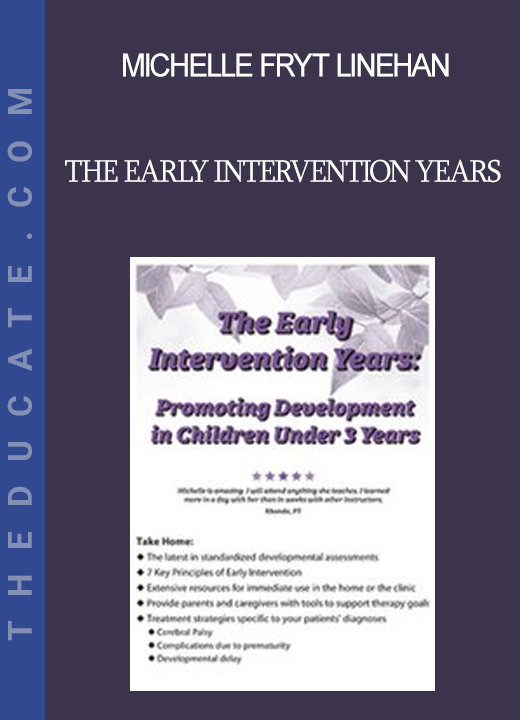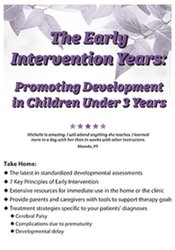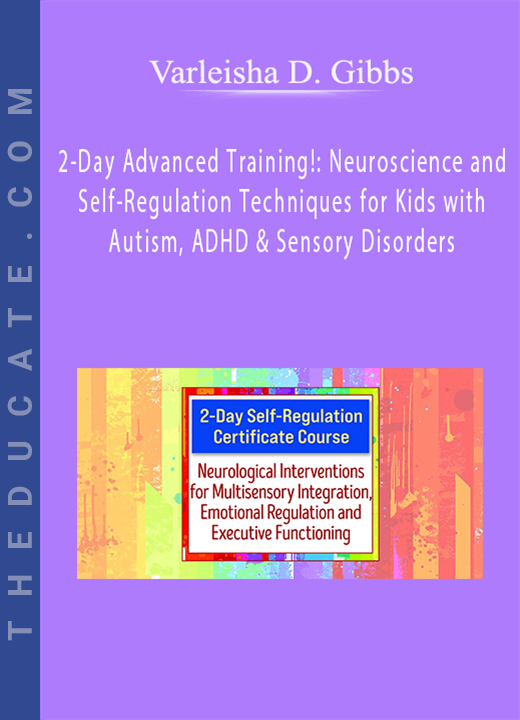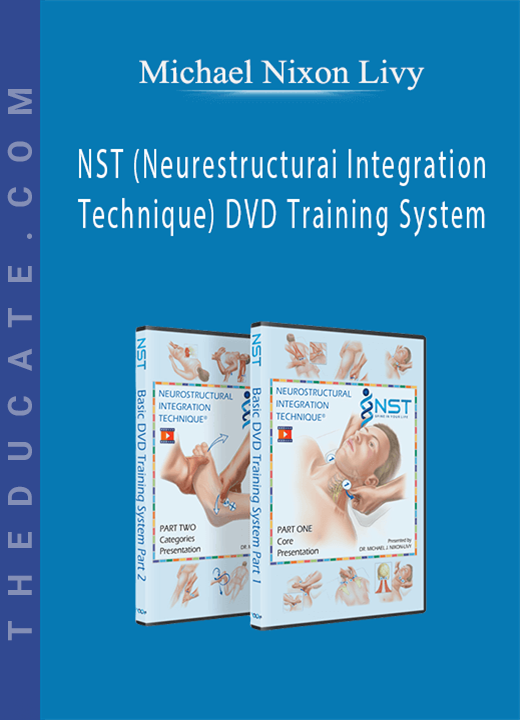Description
Michelle Fryt Linehan – The Early Intervention Years: Promoting Development in Children Under 3 Years
- Faculty:
- Michelle Fryt Linehan
- Duration:
- 5 Hours 11 Minutes
- Format:
- Audio and Video
- Copyright:
- Jun 09, 2017
Description
Promoting Development in Children Under 3 Years
The most current research can be a game-changer for therapists, teachers, and family resources personnel working with children suffering from mild to severe disabilities in the 0-3 age range. This recording will provide updated information on normal development, and how to spot even the most difficult to pinpoint signs of delay.
An in-depth description of the development of the sensory systems, (vision, touch, smell, taste, auditory, proprioception, and vestibular), will be given to maximize the assessment of a child’s motor, coping, and self-regulation strategies. Specific evidence-based treatment techniques for clinicians with patients who have complications related to prematurity, developmental delay, and cerebral palsy will be addressed. Videos, hands-on activities, and a case study will further evince the research and information shared in this critical recording.
Handouts
| Manual – The Early Intervention Years (7.99 MB) | 124 Pages | Available after Purchase |
Outline
TYPICAL DEVELOPMENT OF CHILDREN
- Information from 0-12 months from Amazing Babies
- The “creeping” stage
- Gross Motor Development and Manual Control 1-3 years
DEVELOPMENT OF THE 7 SENSORY SYSTEMS
- Vision
- Visual check list for children under 12 months of age
- Touch/Somatosensory
- Use of massage and “cultural awareness”
- Smell/Olfactory
- Taste/Gustation
- Hearing/Auditory
- Causes of hearing impairment
- Tubes or no tubes
- Proprioception
- Vestibular
- Vestibular stimulation
- Testing Sensory Function in Infants
- Specific Standardized Assessments
- Month-Specific Sensory Motor Checklist from Pathways Awareness
- Gravitational Insecurity Test for Children 2-5 years
MUSCULOSKELETAL CHANGES TAKING PLACE
- Hip joint
- Knee joint (genu varum, valgum)
- Foot/ankle
DEVELOPMENT OF WALKING
- Crucial Elements, postural control, IQ, FPA
- Baby Walkers?
GATHERING INFORMATION
- 7 Key Principles of Early Intervention
- What to do before, during, and after administering a screening
- Perlman Development Screening Checklist
- Pathways Awareness Information
- Hawaii Early Learning Profile
- PIQ – video of child using PIQ
- Bly’s information
- Assessment of Family Activities & Routines, Thomas Jefferson University (2009)
- Canadian Occupational Performance Measure (COPM)
- Goal Attainment Scaling
- Mary Massery: Multi-System Analysis
- Standardized developmental assessments
- BSIDIII, PDMS-2, AIMS
- LAB: Practice recording parent goals and establish strategies to work towards those goals (Example given from The Early Intervention Workbook.)
EVALUATING AND TREATING DEVELOPMENTAL DELAY AND PREMATURITY
- Video of premie
- Pathways Awareness video of typical and atypical development of 6-month old boys
- Definition of prematurity; research related to prematurity
- Evaluating motor skills in premature infants
- Posture in positions; TIMP; Early Motor Questionnaire; GMs (video)
- Treatment Strategies for Premature Infants and Infants with Delay
- Perlman Center Evidence-Based Practice Ideas
- Ideas from Dr. Minja Hadders-Algra
- GAME (Goals, Activity, Motor Enrichment)
- 4 Ingredients for treating children with CP (Fetters)
- Evidence-based practice: 2 systematic reviews
- High-intensity PT for children under 2 years old
- Predictors of independent walking in children with CP
- Training Head Control in Infants: Group Experience!
- Teach To Reach program
- Gymboree Baby Play, Happiest Baby on Block, NDT-based activities
- COPCA vs Traditional NDT-based PT – Early use of COPCA
- Focus on Function RX ideas
- Reading and Responding to Infant Cues
- Getting to Know Your Baby
- Understanding My Signals & Taking Care of Me
- Early Coping Inventory (for children 4-36 months)
- Ideas from Ginny Paleg at AACPDM conference
- Equipment Use
- Go Baby Go
- Standers (for hip abduction as well) gait trainers/walkers
- PWBS
- Theratogs
- Home-made devices
- Case Study With Documentation Options
- ICF-CY – electronic document
- Case study: use of ICF-CY document, COPM, GAS
Faculty
Michelle Fryt Linehan, MSPT, PCS, MEd, Related seminars and products: 3
Michelle Fryt Linehan, MSPT, PCS, MEd, is a licensed physical therapist and APTA Pediatric Certified Specialist with over 26 years of experience working with children in both rehab and educational settings. Currently she works in an outpatient facility in Spokane, Washington, and owns her own practice, Kinetic Kids Physical Therapy, treating children in Idaho. Ms. Linehan previously worked in the field of education, both in the United States and in Africa, as a teacher and state-level administrator for a total of 13 years. She has spent the last 18 years working as a pediatric physical therapist in a variety of settings: hospital acute care, outpatient, school systems, and early intervention programs. Ms. Linehan also previously owned a pediatric physical therapy practice in Georgia, seeing children in their natural environments.
Ms. Linehan received a bachelor’s degree in Elementary Education from the University of Colorado at Colorado Springs in 1980, obtained a master’s degree in Early Childhood Special Education from the University of Washington in Seattle in 1987, and in 1993 she earned her MSPT from Boston University. Ms. Linehan completed the NDT/Bobath 8-week Pediatric course in 1999 and became a Pediatric Certified Specialist through the American Physical Therapy Association in 2002. She has also earned certifications in Threshold Electrical Stimulation and Infant Behavior Assessment. Ms. Linehan views “Evidence-Based Practice” as a necessary aspect of her clinical practice and continually strives to seek effective ways to provide physical therapy services to all of her patients.
Speaker Disclosures:
Financial: Michelle Fryt Linehan maintains a private practice. She receives a speaking honorarium from PESI, Inc.
Non-financial: Michelle Fryt Linehan is a member of the American Physical Therapy Association







Reviews
There are no reviews yet.